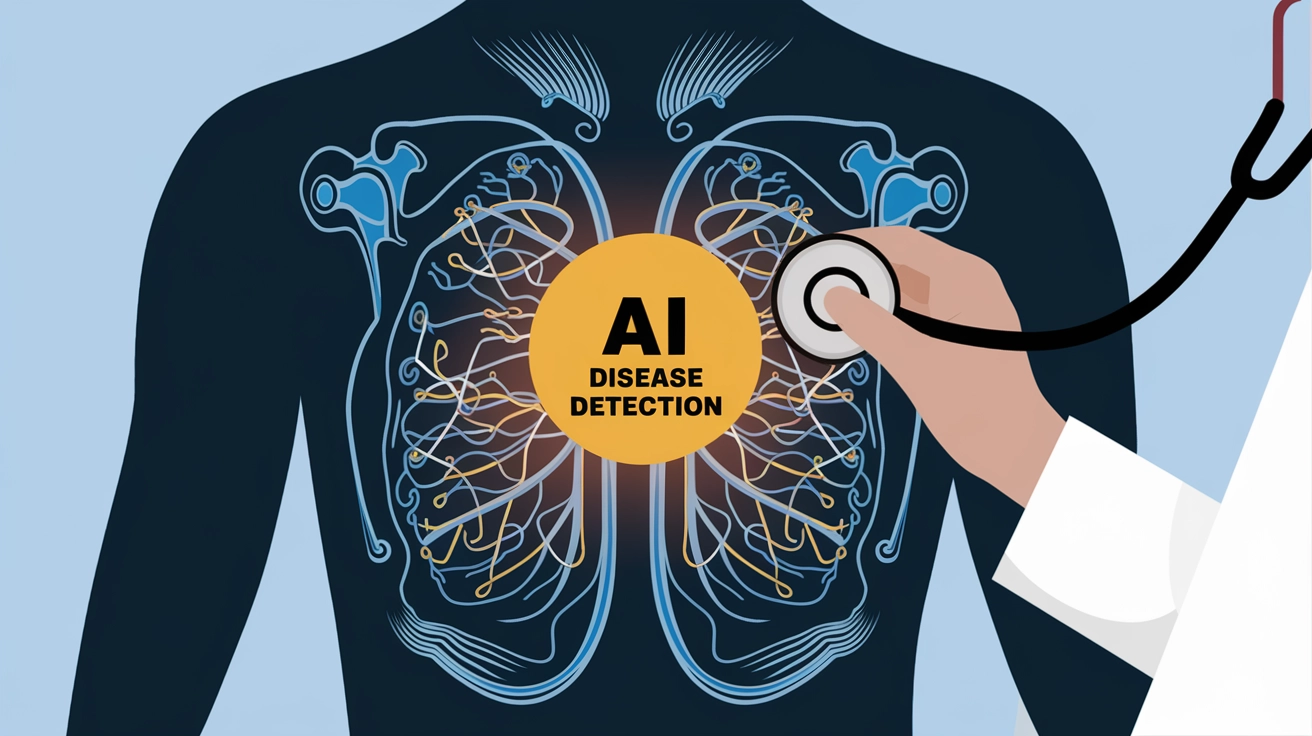AI Detects Early Signs of 1,000+ Diseases

Introduction to AI in Disease Detection
Recent advancements in artificial intelligence (AI) have led researchers to develop a groundbreaking tool capable of detecting early signs of over 1,000 diseases before symptoms manifest. This pioneering technology, known as MILTON, utilizes a sophisticated algorithm that analyzes common test results from patients to identify predictive patterns associated with various diseases.
Details on the MILTON Algorithm
Developed by pharmaceutical firm AstraZeneca, MILTON has the potential to revolutionize healthcare by accelerating the development of effective, targeted treatments while providing open access to clinical data to other researchers for further diagnostic innovations. Slave Petrovski, who spearheaded the research, explained to Sky News that many diseases begin to develop before any clinical signs are present, and often there are numerous biological changes that occur unnoticed in patients.
Data Utilization and Predictive Analytics
AstraZeneca’s algorithm meticulously analyzed data from approximately 500,000 individuals contained within the UK Biobank, a comprehensive health database. By examining 67 routine clinical biomarkers— including blood and urine test results, along with metrics such as blood pressure, weight, age, and sex—MILTON was able to recognize subtle patterns that may previously have gone unobserved. Additionally, the program evaluated data from 50,000 Biobank participants concerning 3,000 blood plasma proteins critical to various bodily functions.
Performance and Predictive Capabilities
The study, published in the journal Nature Genetics, revealed that MILTON exhibited exceptional predictive performance for 121 diseases, categorizing it as highly predictive for an additional 1,091 conditions. The incorporation of protein analysis enhanced MILTON’s ability to flag at-risk patients significantly, with only marginal increases in diagnostic costs.
Paving the Way for Early Intervention
Dr. Petrovski underscored the implications of these findings, highlighting that earlier detection of diseases can prompt timely interventions. The fusion of lifestyle modifications with pharmaceutical treatments may yield optimum health benefits. By shifting focus from late-stage disease assessment to early detection, the goal is to manage and potentially reverse disease progression.
Current Limitations and Future Vision
Although MILTON represents a substantial leap in disease prediction, AstraZeneca advises that it remains a research tool, necessitating further validation before clinical application. Professor Tim Frayling from the University of Exeter cautioned against overestimating the predictive capabilities of the tool, emphasizing that it provides a better understanding of risk rather than certainties regarding disease development.
Ethical Considerations and Challenges
While MILTON’s predictive power is considered remarkable by many health experts, concerns about ethical implications have surfaced. Prof. Dusko Ilic, associated with King’s College London, expressed apprehensions that the technology, if used without regulations, could lead to misuse by health insurers or employers, potentially resulting in discrimination against patients based on their health predictions. Establishing strict guidelines will be critical for ethical and responsible use of this innovative technology.
Conclusion: Transforming Health Outcomes
The development of MILTON marks a significant advancement in employing AI to enhance early disease detection and improve patient outcomes. As the healthcare sector continues to evolve with digital innovations, such tools may ultimately reshape prevention strategies, leading to a healthier future. However, careful ethical considerations and regulatory oversight are essential to ensure the responsible deployment of these powerful predictive technologies.